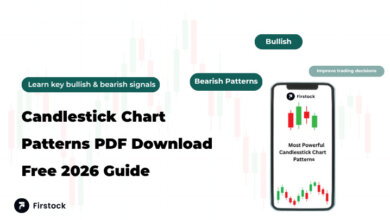Get Hired Faster with Accounting Work Experience

Reading books isn’t enough if you want to have a successful accounting career. People with practical skills are in high demand by employers these days. Gaining work experience in accounting is, therefore, essential. It makes you stand out in a crowded job market and helps you put what you’ve learnt into practice.
A financial accounting class can give you strong knowledge of how businesses handle money. But when you add real experience to that, you become a top candidate for the role you want. Whether you’re just starting or looking to grow, combining AccountingCPD (continuing professional development) with practical experience is a smart move.
Why Employers Value Work Experience
Employers want evidence that you can perform the job, not just words. They are more likely to trust you if you have experience with actual tasks, such as managing ledgers or creating reports. Work experience is crucial because of this.
It demonstrates your proficiency with financial statements, accounting systems, and meeting deadlines. Even short-term experience through internships or volunteering can set you apart from someone who only has classroom knowledge.
How a Financial Accounting Class Supports Your Growth
A financial accounting class builds your core knowledge. It teaches you about balance sheets, profit and loss accounts, and cash flow statements. You learn how to keep financial records accurate and complete, and why this matters for businesses and organisations.
But remember, this class is just your starting point. You’ll still need experience to turn theory into a practical skill. That’s where internships, work placements, and even freelance projects come in. These give you the confidence to work on real accounting tasks.
The Role of AccountingCPD in Your Career
To grow in any profession, you need to keep learning. That’s what AccountingCPD is all about—keeping your knowledge fresh and up to date. The accounting world changes quickly with new rules and tools. CPD helps you stay ahead.
When you do CPD activities like workshops, short courses, or webinars, it shows you’re serious about your career. It also helps you build new skills that are in demand, like using cloud-based accounting software or understanding tax changes.
Benefits of Getting Accounting Work Experience Early
Getting accounting work experience early gives you an edge. You build your CV, grow your confidence, and start building professional contacts. Many employers end up hiring their interns or trainees because they already know how they work.
Real experience also helps you understand what kind of accounting job you want. Whether you prefer working with small businesses, big firms, or even starting your own service, practical work will guide your path.
You also get to use software and tools commonly used in the field, like Sage, Xero, or QuickBooks. That’s a major plus when applying for your first job.
Finding the Right Opportunities
It might feel hard to find the right opportunity, especially if you’re new to the field. But there are ways to start. Look for companies that offer traineeships, internships, or volunteer roles. Some training providers also include accounting work experience as part of their course.
You can also ask local accounting firms or charities if they need help. Even part-time work or shadowing someone for a few weeks can make a difference. Just make sure the work lets you build real skills you can use later.
Build Soft Skills Along the Way
While technical knowledge is key, soft skills are just as important. Working with real teams helps you build communication, time management, and problem-solving skills. These are all qualities employers love.
When you gain accounting work experience, you also learn how to manage your workload, ask the right questions, and handle feedback. These things help you grow faster and perform better in interviews.
Build a Strong Portfolio
A great way to stand out is by creating a small portfolio of your work. This could include spreadsheets, sample reports (with sensitive info removed), or a summary of tasks you completed during your experience. A portfolio helps employers visualise what you can do.
If you’re attending a financial accounting class or pursuing AccountingCPD, start documenting your learning and achievements from day one. This habit makes it easier to create a strong portfolio over time.
Final Thoughts
Learning theory is important. But experience takes you further. By joining a financial accounting class, doing regular AccountingCPD, and gaining accounting work experience, you’re building a strong base for your future.
Even if you’re just starting, don’t wait. Get involved, take action, and build the kind of experience that gets you hired. Your finance career can begin today, with a mix of learning, practice, and the right mindset.
Let your experience tell your story. It’s the best way to move forward, faster.


